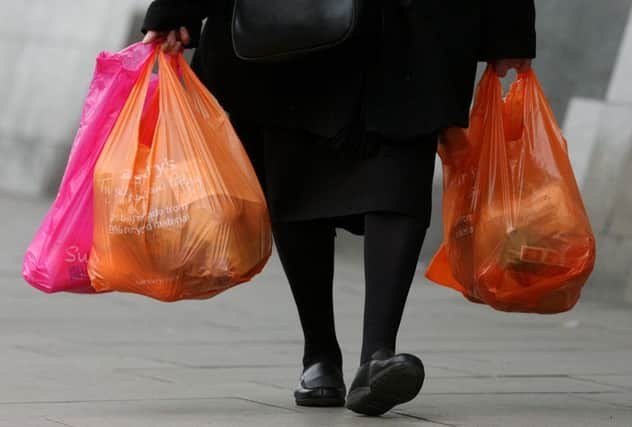Sainsbury’s to cut plastic packaging in half by 2025


Sainsbury’s is to slash its plastic packing use in half by 2025 by introducing refillable packaging and returnable milk bottles.
The new target includes all branded food packaging, Sainsbury’s brand food packaging and packaging across all of the company’s operations. Sainsbury’s uses almost 120,000 tonnes of plastic packaging a year and was ranked the worst performing retailer in a Greenpeace study of supermarkets’ plastic use. It reduced plastic packaging by just 1 per cent last year.
Advertisement
Hide AdAdvertisement
Hide AdSainsbury’s said it would switch to alternative materials and use lighter-weight plastics, focusing on milk bottles, packaging for fruit and vegetables, fizzy drinks, water and fruit juices. Other supermarkets have also recently committed to reducing plastics.
Last month, Tesco said it would ban from its shelves all products with “excessive or inappropriate” packaging in an attempt to cut down on plastics. Meanwhile, Morrisons and Waitrose have both tested refill stations to allow customers to buy packaging-free goods, while frozen foods chain Iceland has pledged to eliminate all plastics in its own-brand products within five years.
Mike Coupe, chief executive of Sainsbury’s, which was the first supermarket to axe plastic bags for fresh fruit, vegetables and bakery items in all of its stores earlier this year, said: “Reducing plastic and packaging is not easy.
“Packaging plays a vital role in keeping our food safe and fresh and minimising food waste. We must therefore find alternatives to plastic that protect the quality of our food while minimising our impact on the environment.”
He added: “We can’t do this on our own and we will be asking our suppliers and our customers to work with us to help us make this important change.”
The supermarket said that plastic milk bottles are one of its largest sources of plastic packaging and that it would review alternatives, including the introduction of refillable bottles, introducing returnable milk bottles or offering a reusable jug with milk in a lightweight plastic pouch.
Environmental campaigners welcomed the move. Supermarkets generate a minimum of 59 billion pieces of single-use plastic items every year, according to Greenpeace. Louise Edge, head of Greenpeace UK’s ocean plastics campaign, said: “This commitment from Sainsbury’s ... is a victory for the tens of thousands of customers who lobbied them to do better on plastic.”